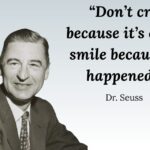Fortune cookies often offer timeless wisdom that resonates with us at different stages of our lives. Today's message, “You’re never too old to learn,” serves as a powerful reminder that learning is a lifelong journey, not confined by age. This article delves into the importance of lifelong learning, its benefits, and practical strategies for embracing continuous education and personal growth at any stage of life.
The Importance of Lifelong Learning: Understanding Why Education Knows No Age Limit
Lifelong learning is the ongoing, voluntary, and self-motivated pursuit of knowledge for personal or professional development. It transcends traditional schooling and extends into all areas of life, encompassing both formal and informal education.
Adapting to a Changing World: In a rapidly evolving world, continuous learning is essential for staying relevant and adapting to new technologies, industries, and societal changes. Whether it’s learning new skills for career advancement or keeping up with technological advancements, lifelong learning helps us navigate and thrive in a dynamic environment.
Enhancing Cognitive Function: Engaging in continuous learning stimulates the brain and enhances cognitive function, helping to maintain mental sharpness and prevent cognitive decline. Studies have shown that intellectual engagement throughout life can improve memory, problem-solving skills, and overall mental agility.
Fostering Personal Growth and Fulfillment: Lifelong learning contributes to personal growth and fulfillment by allowing us to explore new interests, develop new skills, and achieve personal goals. It enriches our lives by providing a sense of purpose, accomplishment, and self-worth.
The Benefits of Lifelong Learning: How Continuous Education Enriches Our Lives
The benefits of lifelong learning extend beyond intellectual growth, impacting various aspects of our personal and professional lives.
Career Advancement and Professional Development: Continuous learning is crucial for career advancement and professional development. Acquiring new skills and knowledge can open up new opportunities, enhance job performance, and increase employability. It also enables professionals to stay competitive in their fields and adapt to industry changes.
Building Confidence and Self-Esteem: Learning new things boosts confidence and self-esteem, as it demonstrates our ability to grow and adapt. Overcoming learning challenges and achieving new milestones fosters a sense of pride and self-assurance, empowering us to tackle future endeavors with greater confidence.
Expanding Social Connections and Networks: Lifelong learning often involves interacting with others, whether through classes, workshops, or online communities. These interactions can lead to the formation of new friendships and professional networks, enriching our social lives and providing valuable support systems.
Enhancing Quality of Life: Lifelong learning contributes to a richer, more fulfilling life by providing opportunities for exploration, creativity, and self-expression. It encourages a curious and open-minded approach to life, enabling us to discover new passions and interests.
Overcoming Barriers to Lifelong Learning: Addressing Common Challenges and Finding Solutions
While the benefits of lifelong learning are clear, there are often barriers that can make it challenging to pursue. Addressing these obstacles is essential for fostering a culture of continuous education.
Time Constraints: Busy schedules and competing responsibilities can make it difficult to find time for learning. Solutions include setting aside dedicated time for learning each week, integrating learning into daily routines, and prioritizing tasks to make room for educational pursuits.
Financial Barriers: The cost of education and training can be a significant barrier for many individuals. Look for affordable learning options such as free online courses, community programs, scholarships, and employer-sponsored training. Libraries and open educational resources can also provide valuable, cost-effective learning opportunities.
Fear of Failure: Fear of failure or feeling inadequate can prevent individuals from pursuing new learning opportunities. Overcoming this fear involves adopting a growth mindset, which emphasizes the value of effort and learning from mistakes. Celebrate small successes along the way and remember that everyone learns at their own pace.
Technological Challenges: For some, especially older adults, technological challenges can be a barrier to accessing online learning resources. Seek out digital literacy programs, community workshops, and support from friends or family members to build confidence and proficiency in using technology.
Practical Strategies for Embracing Lifelong Learning: Tips for Continuous Education and Growth
Embracing lifelong learning requires intention, curiosity, and a proactive approach. Here are some practical strategies to help you integrate continuous learning into your life.
Set Clear Learning Goals: Define what you want to achieve through your learning efforts, whether it’s acquiring a new skill, pursuing a hobby, or advancing in your career. Setting clear, achievable goals helps to provide direction and motivation.
Leverage Online Resources: Take advantage of the vast array of online learning resources available, including MOOCs (Massive Open Online Courses), webinars, tutorials, and educational platforms like Coursera, Khan Academy, and Udemy. These resources offer flexible and accessible learning opportunities for individuals of all ages.
Join Learning Communities: Engage with learning communities, both online and offline, to share knowledge, gain new perspectives, and build connections with like-minded individuals. Join clubs, attend workshops, and participate in discussion groups to foster a sense of community and mutual support.
Incorporate Learning into Daily Life: Make learning a part of your daily routine by reading books, listening to educational podcasts, watching documentaries, and staying informed about current events. Look for opportunities to learn from everyday experiences and interactions.
Embrace Curiosity and Experimentation: Cultivate a curious mindset and be open to exploring new subjects and activities. Don’t be afraid to try something new, whether it’s learning a musical instrument, experimenting with a new recipe, or picking up a new sport. Embrace the process of discovery and enjoy the journey of learning.
Inspirational Stories of Lifelong Learners: Real-Life Examples of Continuous Education
Learning from the experiences of others can be a powerful motivator. Here are a few inspirational stories of individuals who have embraced lifelong learning.
Grandma Moses: Anna Mary Robertson Moses, known as Grandma Moses, began her painting career in her late 70s after retiring from a life of farming. Despite having no formal training, she became a renowned folk artist, proving that it’s never too late to pursue a new passion.
Nelson Mandela: Nelson Mandela continued his education throughout his life, even during his 27 years of imprisonment. He earned a law degree while in prison and remained committed to learning and personal development, which played a crucial role in his leadership and activism.
Yuichiro Miura: At the age of 80, Japanese alpinist Yuichiro Miura became the oldest person to climb Mount Everest. His dedication to physical fitness and continuous training exemplifies the spirit of lifelong learning and perseverance.
In Conclusion
The fortune cookie message, “You’re never too old to learn,” serves as a powerful reminder that learning is a lifelong journey that knows no age limit. By embracing lifelong learning, we enrich our lives, enhance our cognitive and emotional well-being, and open ourselves to new opportunities and connections.
As we navigate the ever-changing landscape of life, let us remember that the pursuit of knowledge and personal growth is a journey that continues throughout our lives. By adopting a curious and open-minded approach, setting clear learning goals, and overcoming barriers to learning, we can cultivate a fulfilling and enriching lifelong learning journey that enhances our lives and the lives of those around us.






